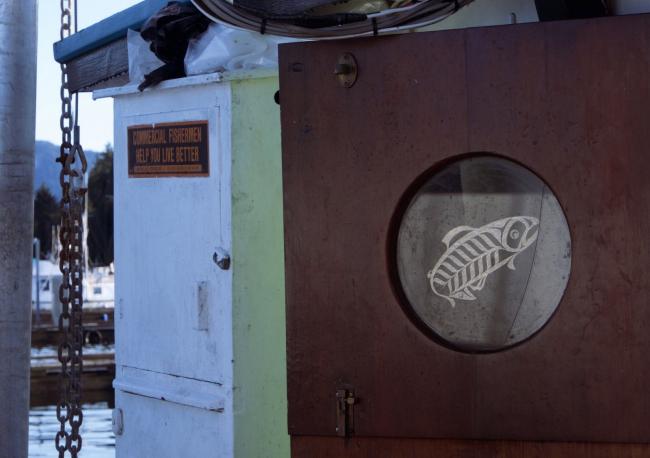Articles Menu

June 29th 2021
Commercial salmon fishing will be closed in most of coastal B.C. this year and into the foreseeable future to save the West Coast's critically low fish stocks, the federal government announced Tuesday.
Nearly 60 per cent of the province's commercial salmon fisheries, once the economic and cultural backbone of the B.C. coast, will be forced to shutter in 2021, Fisheries and Oceans Canada (DFO) said. Yukon salmon rivers will also be closed to all commercial fishing in 2021, while recreational fisheries in both Yukon and B.C. will be restricted. Many of B.C.'s coastal fisheries will likely not reopen to commercial harvesting for years in an attempt to revive the province's dwindling salmon populations.
“No fisheries minister wants to make these kinds of decisions, because they're very difficult and impact people's livelihoods,” said federal Fisheries Minister Bernadette Jordan. “(But) no fisheries minister wants to be the minister when the stock collapses, and that's where we are right now with Pacific salmon — it's a stock on the verge of collapse. If we don't do everything we can, we won't have salmon.”
Pacific salmon are in a long-term decline, with many runs verging on collapse as they struggle to survive climate change, habitat destruction and overfishing. Last year saw the lowest global salmon catch since 1982, according to the North Pacific Anadromous Fish Commission, an international organization protecting wild salmon and other fish.
The province's salmon harvesters — many of them independent and nearing retirement — are also struggling after years of dangerously low catches, according to a report published by the United Fish and Allied Workers Union this spring.
To compensate harvesters for the loss, DFO is creating a program to buy back commercial fishing licences from fish harvesters in an effort to permanently decrease the size of the West Coast salmon fleet. In 2019, DFO issued 1,582 commercial fishing licences for West Coast salmon, according to Statistics Canada.
Under the program, fish harvesters will be able to sell their licences back to the government at market value. Financially depleted after years of bad harvests, these licence buybacks will be many harvesters' main retirement income, noted Tasha Sutcliffe, senior adviser for community fisheries at Ecotrust Canada.
First Nations communities that hold one of 127 communal commercial licences will be able to shift to fishing techniques less-damaging to salmon or use the licences to catch other healthy commercial species, like halibut.
“Some First Nations do harvest commercially, but they're coming to the realization that something needs to be done to preserve our stocks,” said Chief Dalton Silver, fisheries representative for the Union of B.C. Indian Chiefs. Salmon are key to food security and cultural well-being for many Indigenous people in the province. Preserving them is essential, even if it impacts First Nations' commercial fisheries, he said.
“I think a lot of our people would feel better if there was a complete halt to the commercial aspect of the fishery (to) allow the stocks to rebuild,” he said, noting that while not all Indigenous people agree entirely with that position, it is becoming more commonplace.
“It's incredibly sad,” said Aaron Hill, executive director of Watershed Watch, an organization working to bring back B.C.'s salmon. “When we see a fishery closure, it's a collective failure of all of us to manage our salmon and fisheries better over the last decades (to) avoid such drastic measures and their social and economic consequences.”
Commercial salmon fishing will be closed in most of coastal B.C., the federal government announced Tuesday. #Salmon #BCIt is essential the licence buyback program adequately supports fish harvesters who have seen their livelihoods disappear, said Hill. Overfishing is only one of the factors driving the species' decline, with climate change, open-pen fish farms and habitat destruction also to blame. #Salmon # - Twitter
It is essential the licence buyback program adequately supports fish harvesters who have seen their livelihoods disappear, said Hill. Overfishing is only one of the factors driving the species' decline, with climate change, open-pen fish farms and habitat destruction also to blame.
“The salmon crisis is not the fault of working fishermen,” he explained.
Looking ahead, he hopes this decision will make a profound shift in how salmon is managed and harvested in B.C. That means moving to fishing techniques that increase the market value of each fish while reducing the overall environmental impact of commercial fishing.
For example, fishing by troll — a technique that relies on hooks and line — or harvesting fish once they reach their spawning river can send higher-quality fish to market with less ecological impact. Techniques that help harvesters only retain fish from the healthiest runs, like genetic testing, could also help make any future fisheries more sustainable, he said.
Silver added that fisheries management also needs to be overhauled to better integrate Indigenous knowledge.
“I've always said that if (Indigenous people) were involved from the very beginning, upon contact, with the management of our resources, we'd all be in a lot better place today,” he said. It's an approach that has gained significant attention recently thanks to several researchers and its adoption by global seafood ranking organization Ocean Wise this spring.
DFO has committed to working with First Nations to revive the salmon, said Jordan, Canada's fisheries minister. The ministry will also work with fish harvesters, environmental groups and other organizations to bring the fish back.
“There's no one thing that's going to solve the problem, but if we don't start taking these measures now, there's going to be no salmon to protect,” she said. “I think we have a moment in time, and that window is closing. I think if we don't do this now, it will be too late — but I still think we have the ability to make a difference.”
[Top photo: Commercial salmon fishing — once the cultural and economic backbone of coastal B.C. — will be significantly diminished to protect the salmon, the federal government announced Tuesday. Photo by Marc Fawcett-Atkinson]